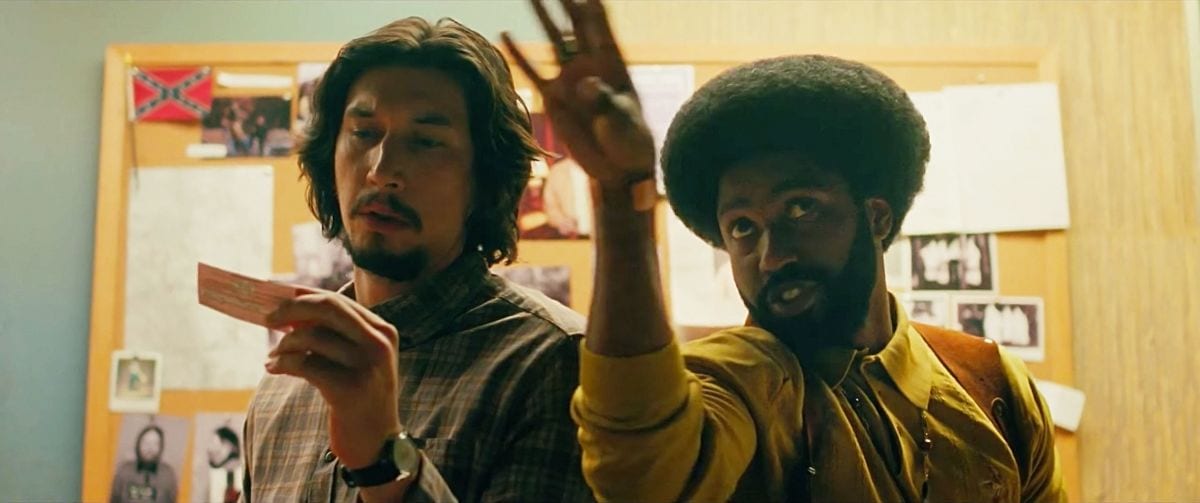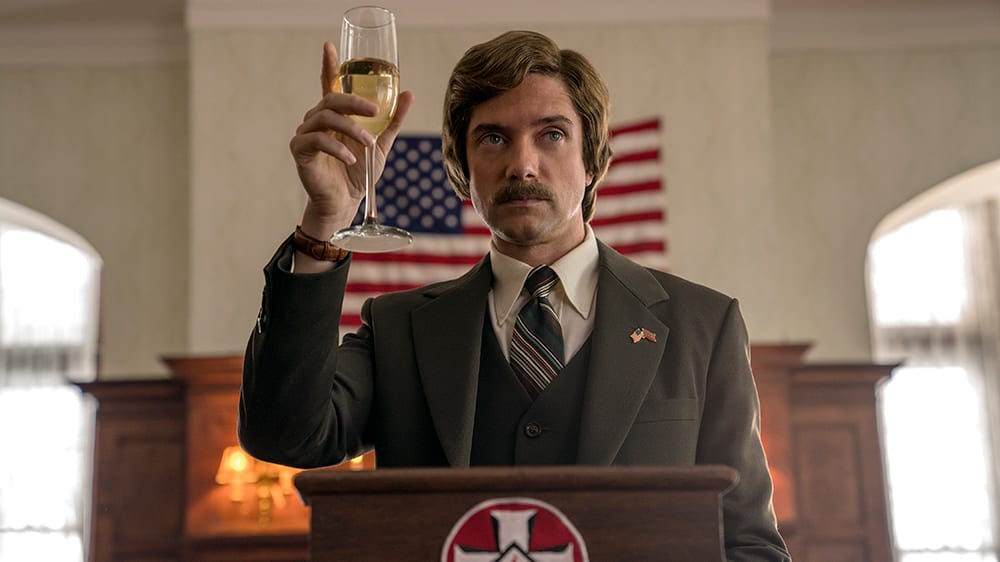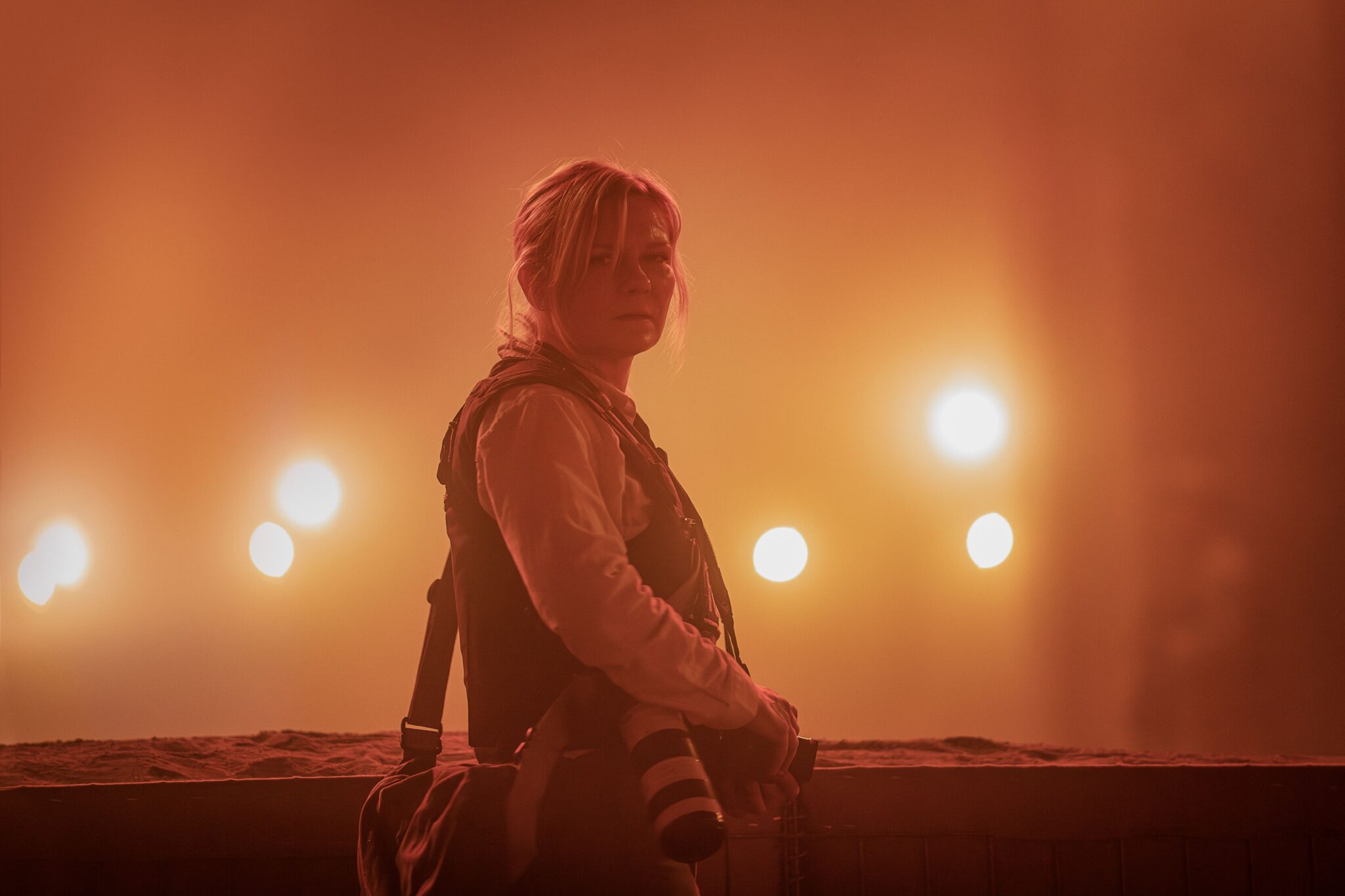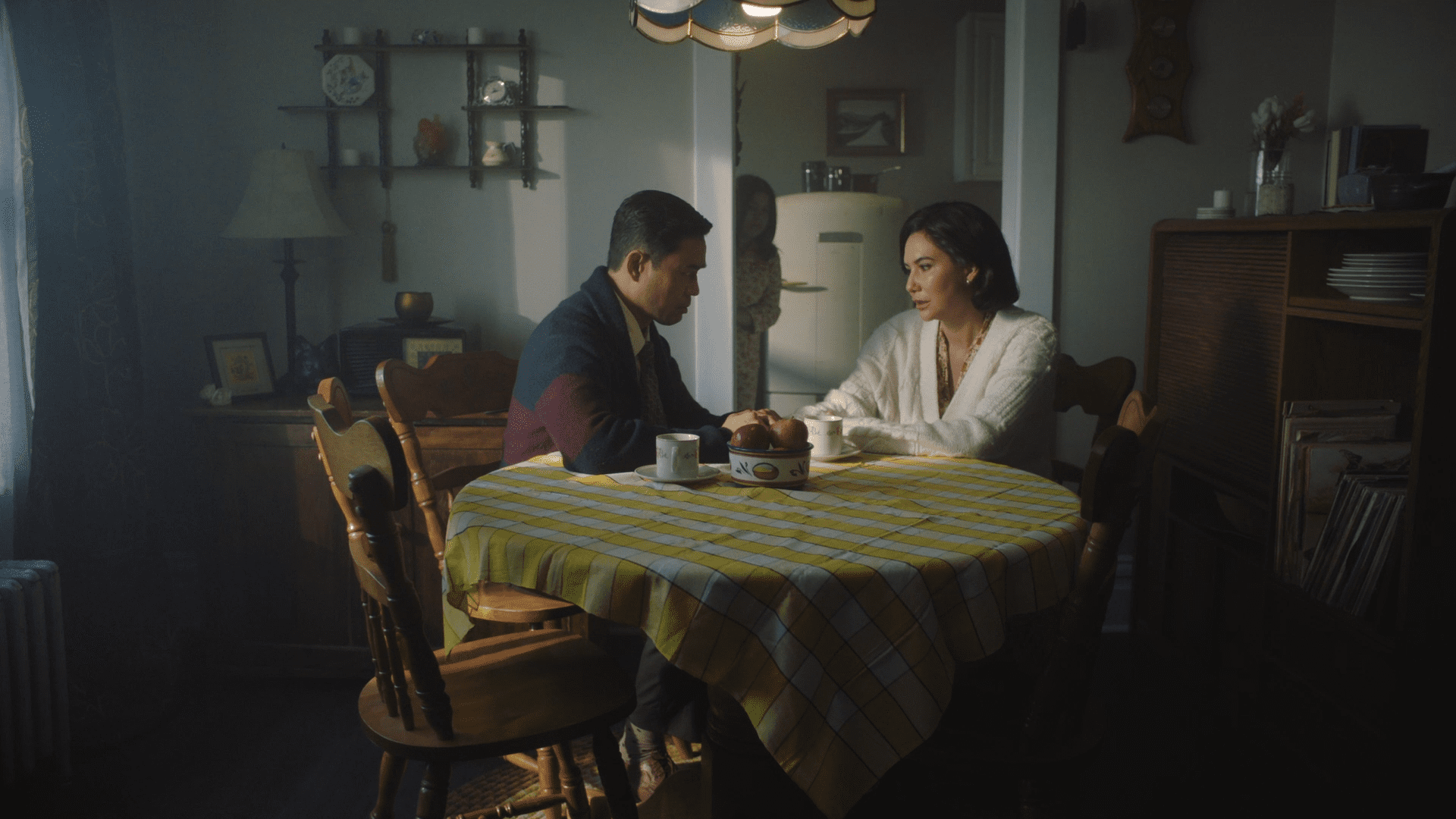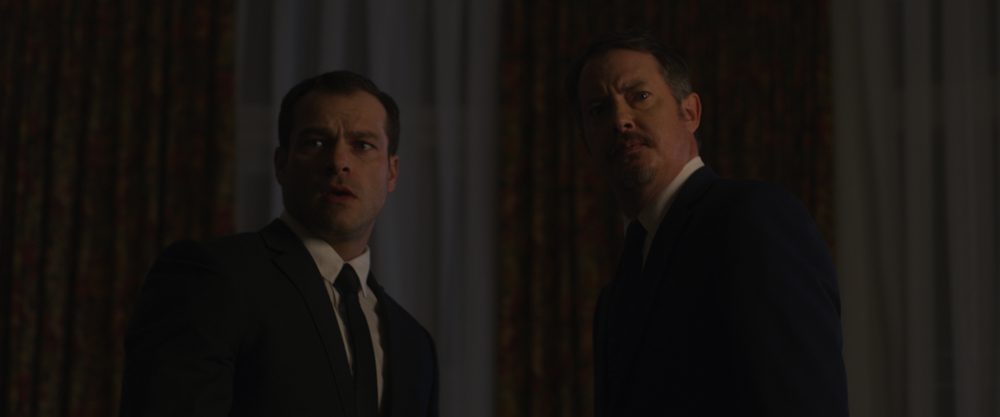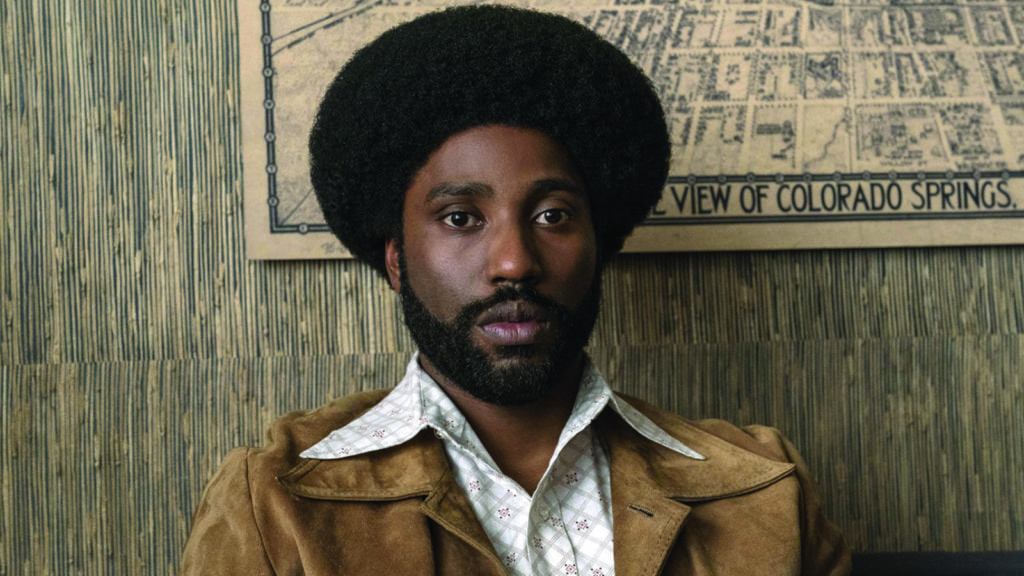 Ron Stallworth is the first black officer in the Colorado Springs Police Department in the 1970s, and while assigned to the intelligence division, he calls the number for the local Klu Klux Klan. Invited to the chapter, Stallworth puts his Jewish co-worker up to impersonating him at the meeting. Before too long, the black man and the Jewish man have infiltrated the chapter, days before Grand Wizard David Duke pays Colorado Springs a visit.
Ron Stallworth is the first black officer in the Colorado Springs Police Department in the 1970s, and while assigned to the intelligence division, he calls the number for the local Klu Klux Klan. Invited to the chapter, Stallworth puts his Jewish co-worker up to impersonating him at the meeting. Before too long, the black man and the Jewish man have infiltrated the chapter, days before Grand Wizard David Duke pays Colorado Springs a visit.
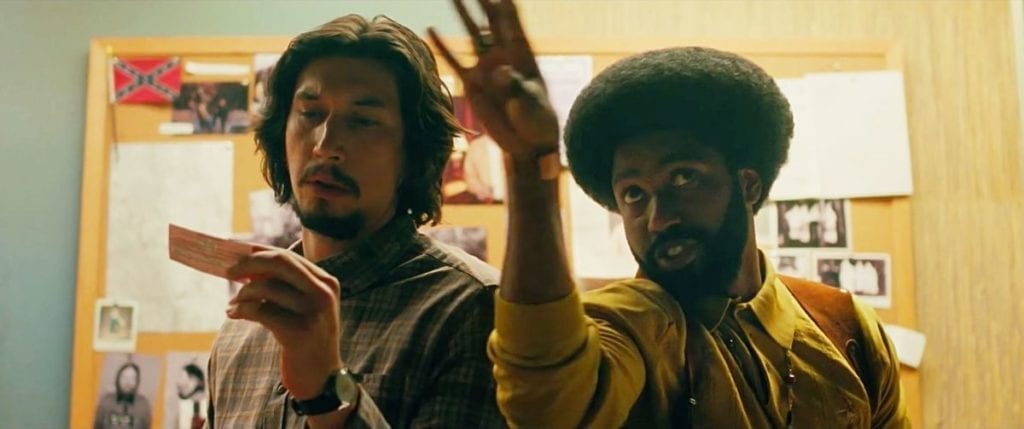 John David Washington, son of Denzel, plays Stallworth to the hilt: more intelligent, quick witted, and compassionate than any of the police officers like Fred Weller’s Andy Landers who uses his whiteness as a bludgeon, taking what he wants and assuming he’s the better man. [Ironically, I didn’t realize Washington was Denzel’s son until writing up the review – his looks, voice, and has mannerisms mirror his father’s so much I thought he’d simply studied Denzel.] As Detective Flip Zimmerman, Adam Driver proves again his depth and range (Star Wars: The Last Jedi, Midnight Special) as Stallworth’s alter ego. These two have great banter – and significant conversations about the threats facing blacks and Jews in 1970s America, where Stallworth recognizes changes need to be made and Zimmerman thinks they should go along to get along.
John David Washington, son of Denzel, plays Stallworth to the hilt: more intelligent, quick witted, and compassionate than any of the police officers like Fred Weller’s Andy Landers who uses his whiteness as a bludgeon, taking what he wants and assuming he’s the better man. [Ironically, I didn’t realize Washington was Denzel’s son until writing up the review – his looks, voice, and has mannerisms mirror his father’s so much I thought he’d simply studied Denzel.] As Detective Flip Zimmerman, Adam Driver proves again his depth and range (Star Wars: The Last Jedi, Midnight Special) as Stallworth’s alter ego. These two have great banter – and significant conversations about the threats facing blacks and Jews in 1970s America, where Stallworth recognizes changes need to be made and Zimmerman thinks they should go along to get along.
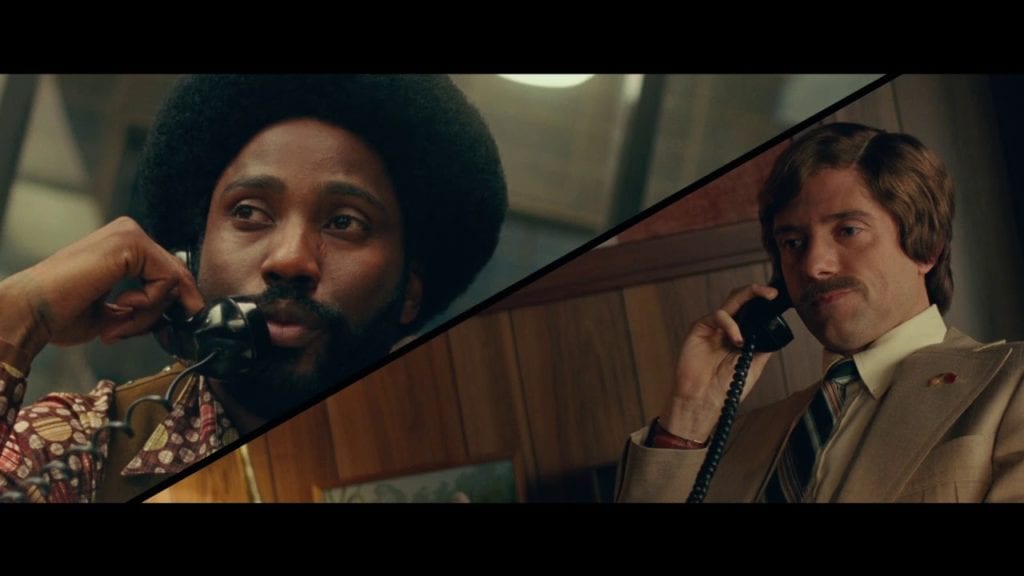 While the story slowly builds, showing us the way the local Klan is split between the cautious Walter Breachway (Ryan Eggold, fantastically different than Dr. Max Goodwin on?New Amsterdam) and the rabidly psychotic Felix Kendrickson (Jasper Paakonen). Against the backdrop of the Stallworth/Zimmerman infiltration, Stallworth does his best to woo the head of the local Black Student Union, Patrice Dumas (Laura Harrier). They discuss what it means to be loyal to the country or standing for something bigger than themselves. Somehow, Stallworth looks at both sides, the extremist black one and the extremist white one, and tries to examine it from a cop’s perspective.
While the story slowly builds, showing us the way the local Klan is split between the cautious Walter Breachway (Ryan Eggold, fantastically different than Dr. Max Goodwin on?New Amsterdam) and the rabidly psychotic Felix Kendrickson (Jasper Paakonen). Against the backdrop of the Stallworth/Zimmerman infiltration, Stallworth does his best to woo the head of the local Black Student Union, Patrice Dumas (Laura Harrier). They discuss what it means to be loyal to the country or standing for something bigger than themselves. Somehow, Stallworth looks at both sides, the extremist black one and the extremist white one, and tries to examine it from a cop’s perspective.
The film is funny, in a witty way, and in the comical way Topher Grace plays David Duke. There’s a line in there about how America would never elect a racist like David Duke to be the president, and the irony isn’t lost given the racism ripping up and down the United States. But there’s also something deeply dark and powerful at the undercurrent of the film that is troubling, and challenging to stomach.
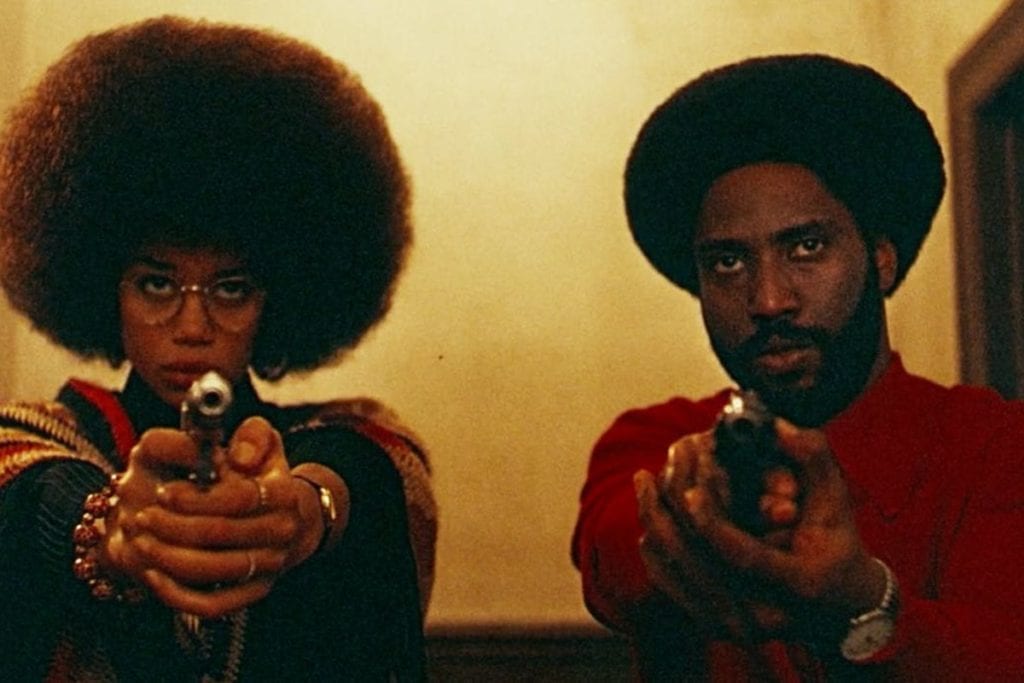 In one particular series of scenes, the black students rally around a contemporary of Martin Luther King Jr.’s and hear about the violence he saw firsthand, while Duke initiates the local Colorado Springs chapter into full-blooded Klan membership. In both,?The Birth of a Nation is referenced – in one place as a cause of great violence; in the other, part of a Christian-influenced ceremony with popcorn and cheers as the evil of the Klan celebrates. Yes, this is an agenda – it’s a Spike Lee joint! – but it’s also dealing with history with an eye to the present, and we’re foolish to act like it isn’t pointing a finger at us, asking us if we’re just like the white cops who allow Landers to continue because the police are a “brotherhood.” Two brotherhoods, one movie…
In one particular series of scenes, the black students rally around a contemporary of Martin Luther King Jr.’s and hear about the violence he saw firsthand, while Duke initiates the local Colorado Springs chapter into full-blooded Klan membership. In both,?The Birth of a Nation is referenced – in one place as a cause of great violence; in the other, part of a Christian-influenced ceremony with popcorn and cheers as the evil of the Klan celebrates. Yes, this is an agenda – it’s a Spike Lee joint! – but it’s also dealing with history with an eye to the present, and we’re foolish to act like it isn’t pointing a finger at us, asking us if we’re just like the white cops who allow Landers to continue because the police are a “brotherhood.” Two brotherhoods, one movie…
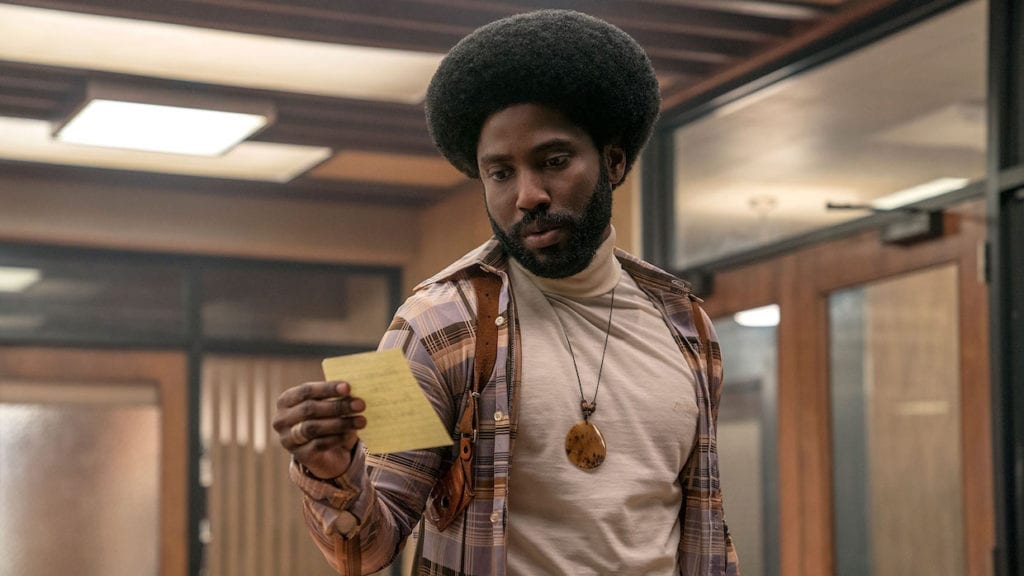 Wrestling with the racism and ideology in the film leaves me to think that there’s supposed to be another brotherhood, another family, the body of Christ, that’s supposed to stand against this. But the truth is that the Klan’s ideals are so tied to the religious experience of some in church that the water gets muddied, as does the theology. This is true of more issues than I care to admit within the life of the church – racism, sexism, etc. – and we cannot claim to be the body of Christ until we take a good long look in the mirror and consider how our -isms and our privilege separate us from those who God created as our brothers and sisters.
Wrestling with the racism and ideology in the film leaves me to think that there’s supposed to be another brotherhood, another family, the body of Christ, that’s supposed to stand against this. But the truth is that the Klan’s ideals are so tied to the religious experience of some in church that the water gets muddied, as does the theology. This is true of more issues than I care to admit within the life of the church – racism, sexism, etc. – and we cannot claim to be the body of Christ until we take a good long look in the mirror and consider how our -isms and our privilege separate us from those who God created as our brothers and sisters.
Special features on the Blu-ray include the cast and crew discussing working with Lee, as well as the extended trailer featuring “Mary, Don’t You Weep” by Prince. The end credits include scenes from the conflict at the University of Virginia in August 2017 that highlight that we still have a racism problem in America.?

